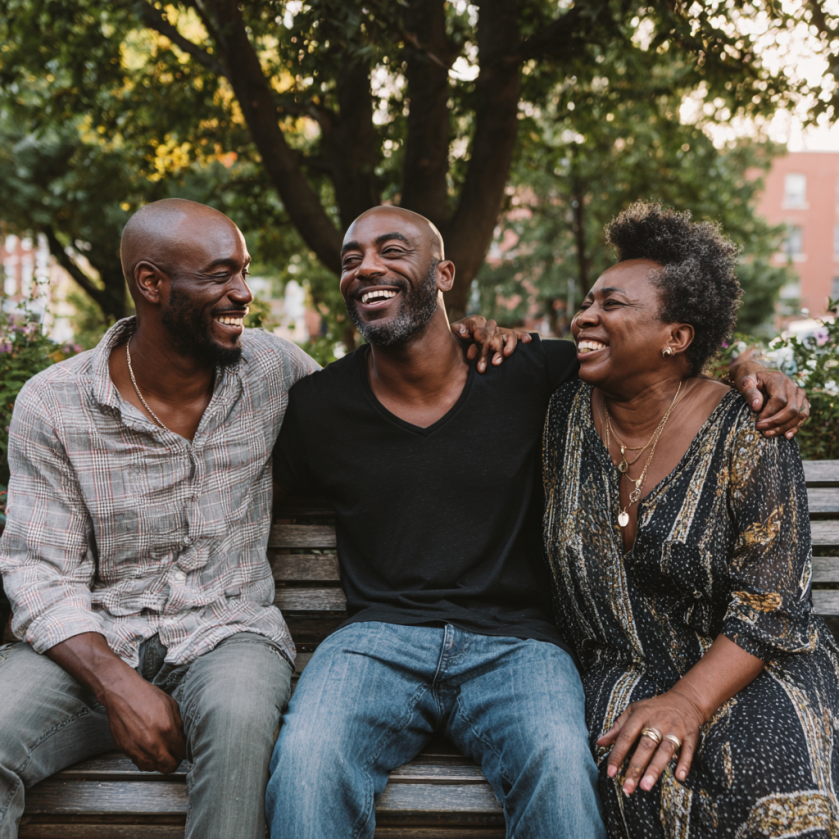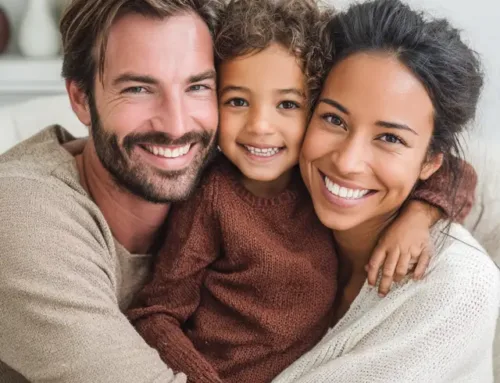Can You Adopt Someone Older Than You in California?
Adoption is most commonly associated with children, but in California and many other states, adult adoption is not only possible—it’s legal and increasingly common in specific situations.
But what if the person you wish to adopt is older than you?
Can someone in California legally adopt a person older than themselves?
The answer is “no.” The adopting person or persons must be older than the adoptee. However, there is no specific age gap that is required, which means even if an adopting parent is just one day older than the adoptee, that will suffice for a successful adult adoption.
Since adult adoption remains one of the most popular forms of adoption, let’s explore the legal framework, the reasons it’s done, and the process of making a successful adult adoption.
What is Adult Adoption?
Adult adoption in California is the legal process of establishing a parent-child relationship between two consenting adults, typically when the adoptee is 18 years of age or older.
Unlike child adoption, which involves severing legal ties with biological parents and transferring parental rights, adult adoption is generally about affirming existing emotional or familial bonds.
It’s often used to formalize long-standing relationships where a person has served as a parental figure without having legal status.
The process is significantly simpler than adopting a minor. There’s no need for home studies, background checks, or lengthy waiting periods.
Instead, adult adoption is mostly paperwork and a short court hearing, provided all parties—including any spouses of the adoptive parent or adoptee—give their consent.
Once finalized, the adopted adult gains the same legal rights as a biological child, including inheritance rights and access to benefits if applicable.
Adult adoption can also be symbolic, used to create legal acknowledgment of a chosen family. This might include long-time foster parents, stepparents, or mentors who wish to create a lasting familial bond with someone they’ve supported emotionally or financially.
In some cases, it’s used for estate planning, guardianship arrangements, or even reconnections between biological parents and children who were previously adopted or estranged.
California Family Code Section 9300
The state’s adoption laws permit the adoption of adults, defined as anyone 18 years or older under California Family Code Section 9300.
These are basic rules that apply to adult adoption:
- You have to be older than the adult you want to adopt.
- You can’t adopt more than one unrelated adult, unless that adult is the biological sibling of someone you have already adopted, or if that adult is disabled or physically handicapped.
- If your spouse or domestic partner has adopted an adult, you can’t adopt another adult for one year, unless that adult is the biological sibling of someone you have already adopted.
Why Would Someone Adopt an Adult?
Adult adoptions serve a variety of personal, emotional, and legal purposes.
Some of the most common include:
1. Formalizing a Long-Term Relationship
In some cases, a stepparent or long-time parental figure might want to legally adopt an adult stepchild to formalize their bond—even if the “child” is now in their 30s, 40s, or older.
2. Inheritance and Estate Planning
Adoption can secure inheritance rights when no biological or legal ties exist, especially in the absence of a will. Adopting an adult may simplify the legal transfer of assets.
3. Caring for Individuals with Special Needs
An adult who serves as a long-time caregiver may adopt an older adult with cognitive or physical disabilities to ensure their legal guardianship and care continuity.
4. Same-Sex Couples Pre-Legalization of Marriage
Before same-sex marriage was legalized nationwide, some couples used adult adoption to create legal familial bonds.
The Obergefell v. Hodges decision, decided by the United States Supreme Court in 2015, ruled that same-sex couples have a fundamental right to marry, protected by the Due Process and Equal Protection Clauses of the Fourteenth Amendment. This landmark case struck down state bans on same-sex marriage and required all states to recognize marriages of same-sex couples performed in other states. The decision, a 5-4 vote, established that the right to marry is a fundamental right that cannot be denied to same-sex couples.
As a result, same-sex adoption in California and in most states now give those couples the same rights as male-female couples when it comes to adoption rights of all kinds, be it foster care to adoption or the adoption of adults.
Legal Process of Adopting an Adult in California
Adult adoption in California is relatively streamlined compared to adopting a minor.
Here’s how the process of adult adoption in California generally works:
Step 1: Consent
Both parties—the adoptive parent and the adoptee—must consent to the adoption in writing. If either party is married, their spouse must also consent.
Step 2: File Petition
A Petition for Adult Adoption (Form ADOPT-200) is filed with the Superior Court in the county where one of the parties resides.
Step 3: Court Hearing
A judge will review the petition and may ask questions during a short hearing. If all requirements are met, the judge will sign the Order of Adoption (Form ADOPT-215).
Step 4: Name Change (Optional)
The adoptee may request a legal name change as part of the process.
Important Considerations and Limitations
- No Intent of Fraud: Adult adoptions cannot be used to bypass immigration laws, marriage restrictions, or other legal boundaries.
- No Parental Rights Over Other Adults: Adoption doesn’t give the adoptive parent authority over the adult’s legal decisions unless other legal agreements are in place (e.g., power of attorney or conservatorship).
- Adoptee’s Rights: Once adopted, the adoptee may be considered a legal heir and family member under California law.
Frequently Asked Questions (FAQ)
Does the adopted adult lose their original birth certificate or family ties?
In adult adoption, the original birth certificate remains valid, but a new one showing the adoptive parent may be issued. Family ties with the biological family are typically not severed unless specified.
How long does the adult adoption process take in California?
The adult adoption process in California usually takes 2-4 months from filing the petition to final court approval. Once you file the Petition for Adult Adoption, the court will schedule a hearing within 6-8 weeks. The actual hearing typically lasts only 10-15 minutes if all paperwork is complete and all parties consent. This timeline can vary depending on court scheduling and whether any complications arise.
Can adult adoption be reversed or undone in California?
Adult adoption in California is generally permanent and cannot be easily reversed. Unlike divorce, there’s no standard legal process to “unadopt” someone. The adoption creates a permanent parent-child relationship with inheritance rights and family status. In extremely rare cases, a court might consider reversing an adoption if there was fraud, duress, or other extraordinary circumstances, but this requires substantial legal proof and is very difficult to achieve.
Do both biological parents need to consent to adult adoption in California?
No, biological parents do not need to consent to adult adoption in California. Since the adoptee is an adult (18 or older), they have the legal right to make their own decisions about adoption. Only the adoptee and the prospective adoptive parent need to consent, along with their respective spouses if married. The biological parents’ rights and relationships typically remain intact unless the adult adoptee specifically chooses to sever those ties.
***
The adult adoption process in California is a flexible legal tool used to formalize deeply personal bonds, ensure inheritance rights, or secure long-term care arrangements.
The law doesn’t care about your age compared to the person you’re adopting—what matters is mutual consent, clear intent, and lawful process.
So yes, you absolutely can adopt someone older than you in California—and it may be one of the most meaningful legal steps you ever take. To better understand and streamline the process, we recommend you contact a qualified adult adoption lawyer to discuss the best path to achieving your adoption goals.
The information provided in this article is for general informational purposes only and does not constitute legal advice. This content is not intended to create an attorney-client relationship. The information presented should not be construed as legal counsel or a substitute for seeking professional legal advice. Any opinions expressed in this article are those of the author and do not necessarily reflect the views of the Adoption Law Firm of Donnelly & Evans, LLP. Readers should not act or refrain from acting based on the information provided without first consulting a licensed attorney for advice specific to their individual situation.
About the Adoption Law Firm
Your dream of building a family through adoption is sacred – and we’re here to help make it real. At the Adoption Law Firm, we have been guiding parents and children toward each other with heartfelt dedication for over 30 years.
We specialize in all aspects of California adoption laws, specializing in:
- Adult adoption
- Child adoption
- Foster care adoption
- Guardianship to adoption
- Legal guardianship
- Birth mother representation
We understand that adoption is a life-changing journey filled with hope, anticipation, and profound meaning. That’s why we stand beside you with both legal expertise and genuine care every step of the way.





